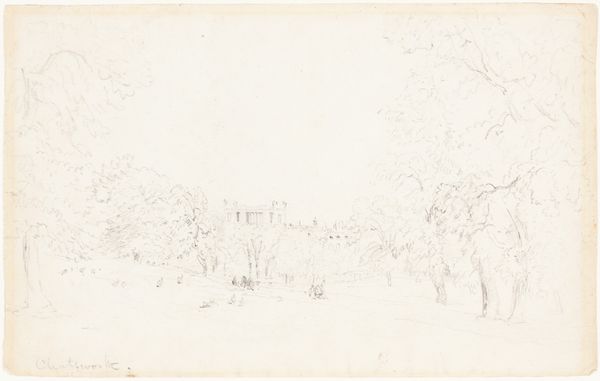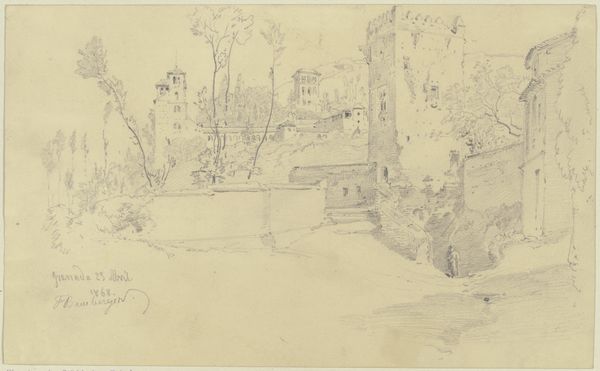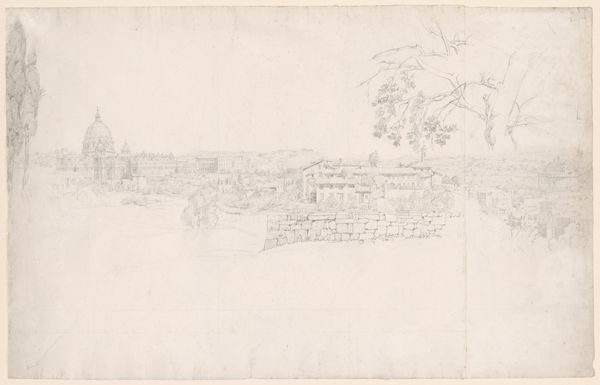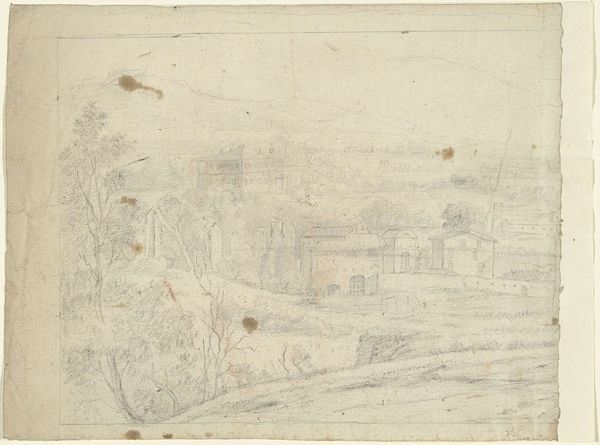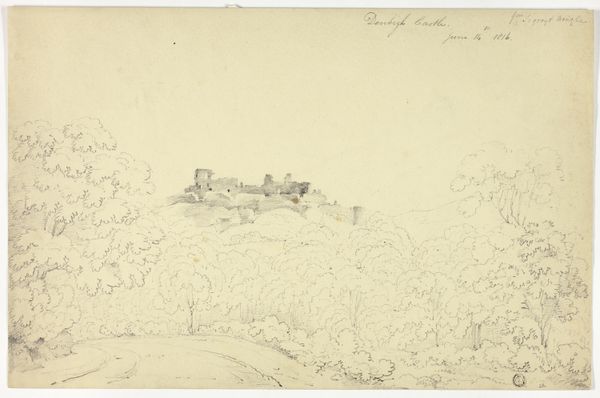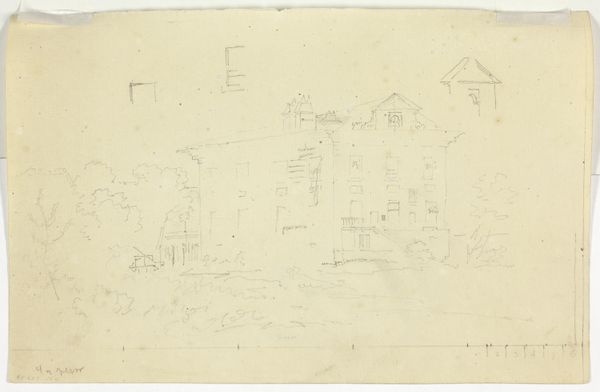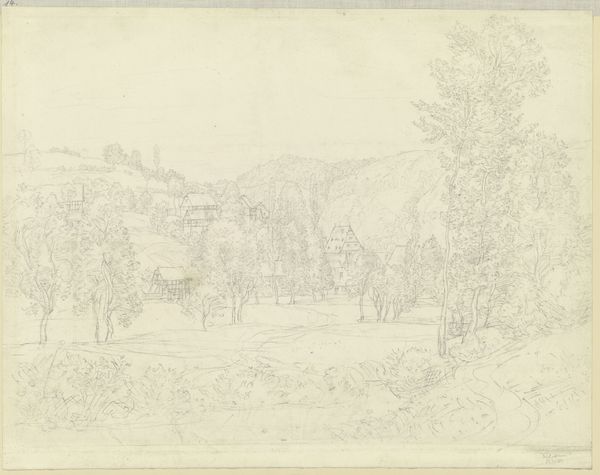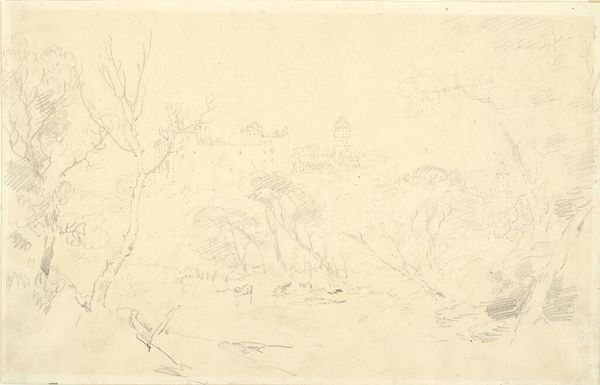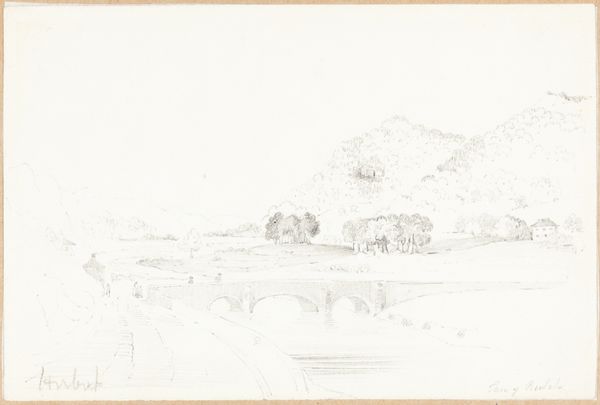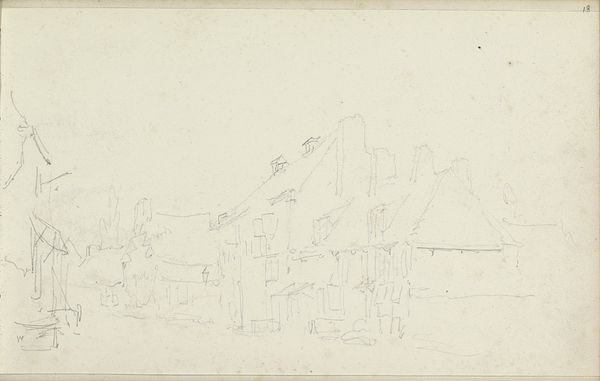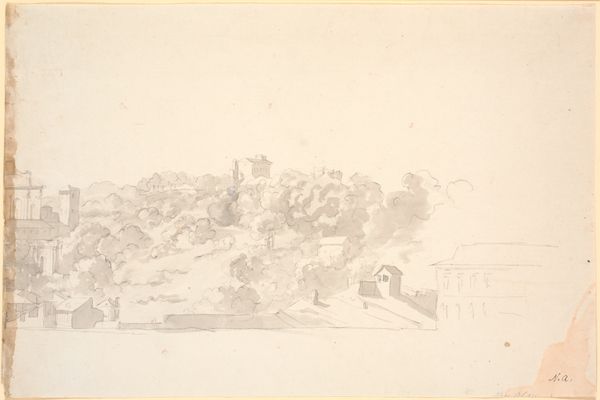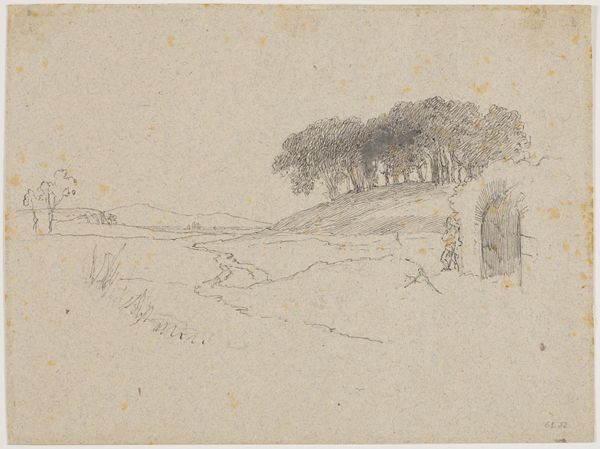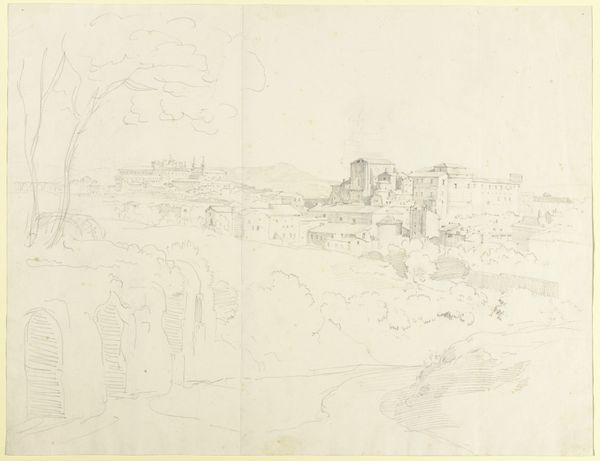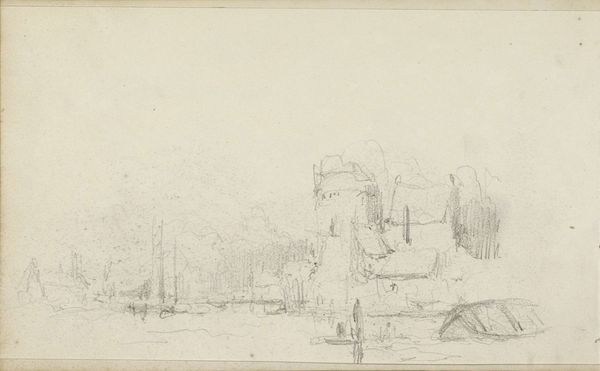
drawing, print, paper, pencil
#
drawing
# print
#
landscape
#
paper
#
pencil
#
realism
Dimensions: 201 × 272 mm
Copyright: Public Domain
Curator: Ah, I see you're drawn to this understated beauty, Nicholas Pocock's "Hampton Court, Herefordshire" from around 1820. It's a pencil drawing, a print even, on paper—a landscape that whispers rather than shouts. Editor: Whisper is right! At first glance, it seems like a half-remembered dream, or perhaps the ghost of a grand estate fading into the mists of time. It makes you wonder about the cost and labor that made those refined lines possible. Curator: It's a fascinating record of place, isn’t it? I find Pocock’s choice to work in pencil interesting; it’s like he’s gently coaxing the scene onto the page, capturing not just the layout but the feeling of the place. Notice the precise way he depicts the architecture contrasting with the softness of the foliage. Editor: It feels intentional, the way the natural world is given precedence over the Hampton Court estate, literally surrounding it in terms of compositional dominance. I'd be interested to examine the quality of the paper too—was it locally sourced? Imported? Mass-produced, or handmade? Each detail implicates labor systems that existed around art production during this time period. Curator: A crucial factor for landscape as a genre in those times—patronage. Remember, the landed gentry of Herefordshire had quite a bit of say in how their estates were represented. And the paper is crucial. The grain allows the pencil to bite and build up tone slowly. It gives such life to this scene. Editor: It strikes me that "landscape" itself becomes a commodity. A carefully constructed vision meant for consumption. A landscape print to decorate the homes of wealthy individuals while subtly normalizing existing labor practices—farms or otherwise—linked to their prosperity. Curator: You are, of course, right. But I also think he had a quiet affection for the everydayness of it all. A personal response. Perhaps he saw something special about this particular angle or quality of light. Art is always, somehow, an echo of the soul. Editor: And that’s precisely where things get complicated, right? That 'soul' is being shaped, molded, and refined by tangible things: materials, commissions, politics. So perhaps in looking at the raw materiality of this image—the paper, the pencil—we expose the systems that created not just the work, but even Pocock's view of that specific landscape. Curator: Nicely said. Thank you. It all gives a different quality when you consider all these nuances... it makes you wonder if perhaps landscapes capture our dreams as much as places themselves, regardless of what lies beneath it. Editor: A way of showing who profits when those dreams turn into commodities! I think I understand a little more about how laboring, consuming bodies intersect in landscapes and land ownership. Thanks for that insight.
Comments
No comments
Be the first to comment and join the conversation on the ultimate creative platform.
